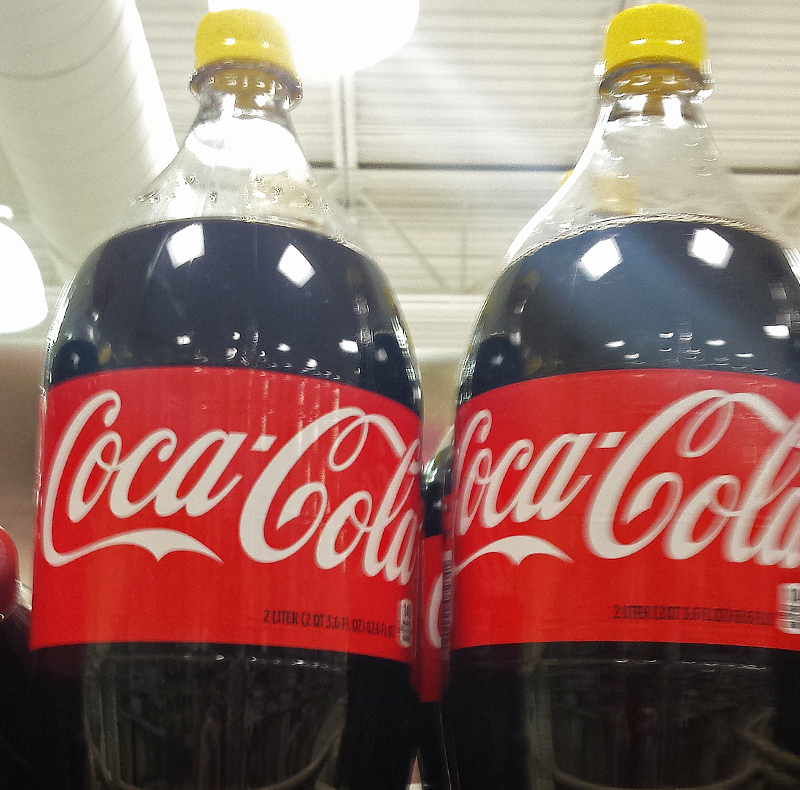It is that time of year again.
You might be wandering through the soft drink aisle in a supermarket or grocery store and noticed that bottles of Coca-Cola suddenly have bright yellow caps on them instead of the more familiar red caps — and you might have asked yourself why those yellow caps are on them.
Coca-Cola Bottles With a Yellow Cap Return in 2020 — But Only For a Limited Time…
Bottles of Coca-Cola topped with a yellow cap indicate that the soft drink is Kosher for Passover, which begins at sundown on Wednesday evening, April 8, 2020 and lasts for eight days in most places around the world; but only for seven days in Israel.
Corn is one of the foods known as kitniyot, which is in the group of foods considered not Kosher for Passover whose texture is similar to wheat, barley, oat, spelt or rye flour — all of which are forbidden for consumption during Passover because they are considered chametz. When they come in contact with water, leavening — the act of fermentation and rising with food products such as many breads and cakes — can occur.
During Passover every year, people of the Jewish faith eat matzoh and avoid leavened products because when Jewish people escaped from ancient Egypt and the rule of the Pharaoh, they would stop along the way to eat when hungry — but they were in such a hurry that there was no time to wait for the dough to rise; so they ate the flattened food which came to be known as matzoh. To this day, matzoh is eaten during Passover to never forget what happened; and eating matzoh during Passover is a commandment of the Torah. No leavened food products — or, with some sects of Judaism, food products which emulate leavened products — are eaten at all during Passover.
Because corn is one of those products forbidden to be eaten during Passover, Coca-Cola and other soft drinks cannot be definitively verified as Kosher for Passover by a Mashgiach, who supervises the process of ensuring that an establishment follows the laws of Kashrut, which determines the dietary laws in Judaism and from where the word Kosher comes…

…so to comply with the laws of Kashrut and be able to sell products to Jewish people who observe Passover, high fructose corn syrup is replaced by sucrose — which is extracted from real sugar cane or beet sugar — in the ingredients of select Coca-Cola products for a limited time.
Additional information is provided by Chabad — a philosophy of the Lubavitch movement of Judaism — pertaining to kitniyot and matzoh.
The History of How Coca-Cola Became Kosher For Passover
“It took an Atlanta rabbi joining forces with executives at the world’s top beverage company”, according to this article — which contains the interesting history of how Coca-Cola became Kosher for Passover — written by Mackensy Lunsford at the official Internet web site of Coca-Cola. “But thanks to the tenacity of Rabbi Tobias Geffen — and that of his thirsty congregation — observant Jews can sip Kosher Coca-Cola during Passover.”

The end result is syrups and concentrates approved and certified as Kosher by the Orthodox Union of Jewish Congregations. The OU which is stamped on yellow caps of Coca-Cola — most commonly at the tops of plastic two-liter bottles — is one of the most widely recognized Kosher symbols.
The P on the cap next to the OU means that the beverage may be used for Passover.
Summary
As I have mentioned in this article pertaining to the sale of smaller cans of soda for more money, I enjoy occasionally consuming soft drinks; but I typically prefer to do that only at lunch or dinner time — although I will consume some soda once in a rare while when it is not time for a meal. I drink either water or juice at most other times whenever I am thirsty…
…but I must admit that I do enjoy those cold glass bottles of Coca-Cola manufactured in Mexico and many other locations around the world because they are made with real sugar. While soft drinks made with real sugar are better than those made with high-fructose corn syrup, in my opinion, they still are not as satisfying as a soft drink made with real sugar and stored in a glass bottle, as some people argue that soda packaged in aluminum cans and plastic bottles are not as good.
If you enjoy Coca-Cola and other products made with sucrose as opposed to high fructose corn syrup, now is the time to enjoy them…
…although there are “retro” bottles of soft drinks available which are sold in glass bottles all year long — if you are willing to pay the higher prices for them.
Chag Kasher v’Sameach — חַג כָּשֵׁר וְשָׂמֵחַ — if you celebrate Pesach.
All photographs ©2017 by B. Cohen.

